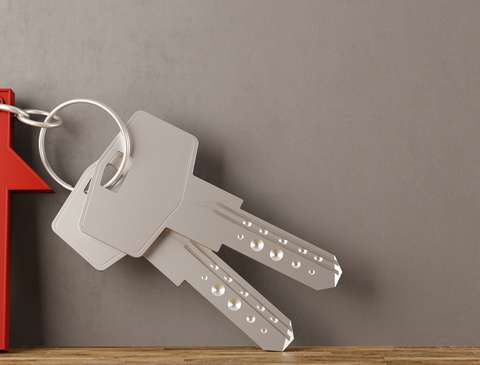How to buy your first home
A step by step guide

With an increasing number of people renting homes – especially in London – buying your first home can feel out of reach. But regardless of how close you think you are to being able to say goodbye to renting for good, it’s a smart idea to have a full understanding of what it takes to buy your first home.
Can I afford it?
One of the first questions you should ask yourself is whether you can afford to buy a home. Affordable housing is generally defined as housing that costs no more than 30% of your monthly income. Many renters spend far more than this – especially in expensive parts of the country, including the capital. Mortgage repayments are often less expensive than rents.
In addition to the purchase price of the property, you should consider how much you have saved for a deposit, and the cost of additional fees from your lender and for things like solicitors and stamp duty. Once you have purchased the home, you will also be responsible for insurance, maintenance, and repairs that a landlord would otherwise pay for – so you need to think about that, too.
In general, the more you have saved for a deposit, the more affordable your mortgage will be. That’s because lower deposits – and your loan term – will affect your interest rates. There are schemes for first-time buyers that allow for deposits as small as 5%, but you will still generally get a better deal if you wait until you’ve saved more. There are also special savings schemes intended for house deposits, such as the Help to Buy ISA, which may help you reach your savings goals faster.
Consider your buying options
Various schemes exist to help first-time buyers get on the property ladder. These include Help to Buy and shared ownership. What’s best for you will depend on your finances, so you should always seek expert, independent financial advice – such as from a certified financial planner or mortgage broker. It’s best to have an agreement in principle from a mortgage provider before going on viewings – mortgage providers will conduct credit checks and offer a certificate to prove that you can get a loan for what they have decided is the maximum you can afford. If you have this information before going on viewings, you won’t waste your time or the seller’s by getting attached to a property you won’t be able to purchase.
Viewing a property
Most first-time buyers will have to make some compromises when it comes to choosing a property. Doing some research and thinking about whether you are able to compromise on location, size, style, or amount of work required will help make sure you have realistic expectations about what your first home will be like, and make going on viewings a less stressful experience.
Looking in areas that are less trendy and convenient than ideal – but still sufficiently safe – is a great way to get a better deal.
Making an offer
By now, you should have a very good idea of what you can afford, and what a lender is prepared to finance. But before you make an offer, it’s a good idea to ask your estate agents lots of questions and do your research so that you know things like how long the seller has been trying to sell their home, and whether they are in a chain. You’ll also need to think about what work needs to be done to the property before you move in, and what your budget for those projects will be. These will influence how high of a price you should offer to pay.
Estate agents are legally required to pass on any offers that are made. It’s best to put it in writing, and to leave yourself some room for negotiation. Include what fixtures and fittings, if any, you want to purchase along with the home. It’s also wise not to be too obvious about having fallen in love with a property at this stage – or you might lose some of your negotiating power. However, not appearing serious by putting in too low of a bid is a very risky move.
To help increase your chances of having your offer accepted, you should let the seller know that you are committed by showing proof that you have been pre-approved for a mortgage and have your deposit ready, as well as having a solicitor engaged for surveying. Offer a small holding deposit to underline your commitment to buying the property.
You can also consult with your estate agent about whether sending a personal note to the seller would be helpful – the personal touch might be what they need to part with their house. Remember, for them, it was likely not just a house, but a home. If they feel that you will take good care of their home, they may be more likely to accept your offer, and not allow later buyers to gazump you. Though they don’t need to comply with this request, you can also ask that the seller take the property off the market at this stage.
Exchange and completion
Exchanging contracts is the point at which a sale becomes legally binding – by now, you’ve approved the valuation and the survey, and your solicitor and the seller’s solicitor have drawn up the purchase details on paper. Signing it constitutes the exchange of contracts, and you now need to give your solicitor your deposit.
You, your mortgage advisor, and your solicitor must then agree with the seller on a completion date. On that day, your mortgage advisor will transfer the amount of the loan to the solicitor, completing the purchase. Then it’s time to pick up the keys from the estate agent, and move into your first home!










